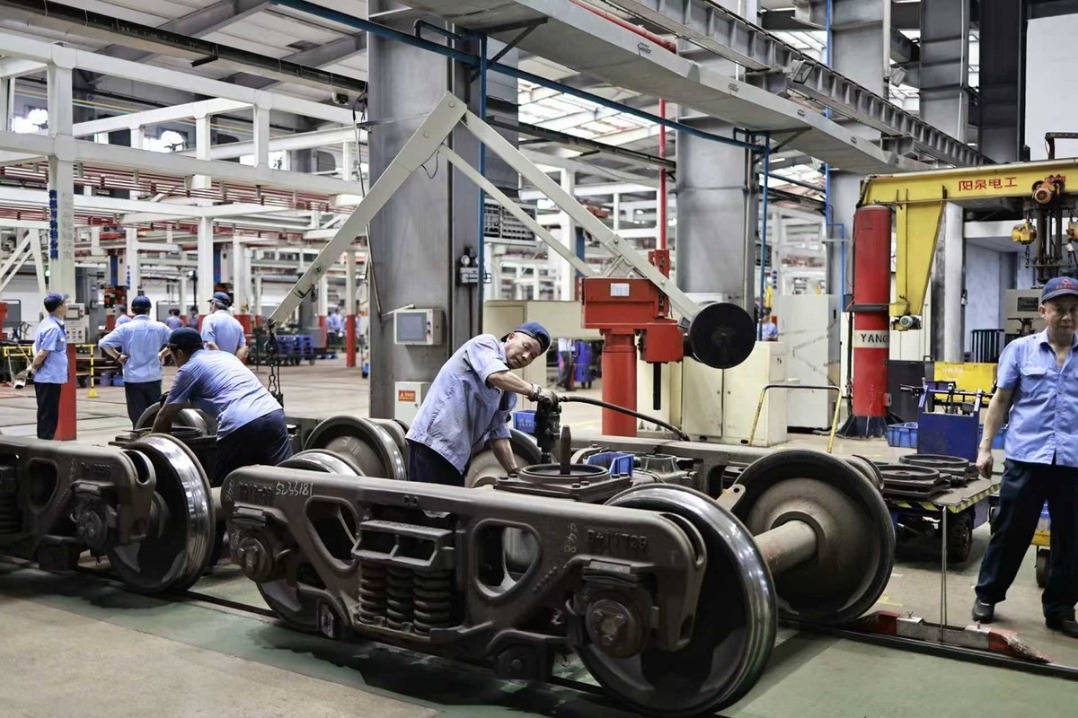Stimulating consumption seen as priority

China's policymakers are widely expected to roll out a potent one-two punch during the country's ongoing annual political event, in order to stimulate consumption, as tepid domestic demand and escalating US tariffs weigh on the recovery momentum of the world's second-largest economy, said national legislators, political advisers and economists.
To bolster the economy, the government is expected to set the country's deficit-to-GDP ratio at the highest level yet in the Government Work Report, which will be reviewed and deliberated by the National People's Congress during the two sessions, the annual meetings of China's top legislative and political advisory bodies, they added.
Yang Chengzhang, a national political adviser and chief economist at Shenwan Hongyuan Securities, noted that the nation is dealing with the challenges of a sluggish real estate sector, which is putting pressure on domestic demand, and the lingering impact of United States tariffs on China's export performance.
"To offset these drags and sustain stable economic growth, the government will likely double down on policies aimed at boosting consumer spending and household incomes," Yang said.
In particular, channeling more fiscal funding to support consumer goods trade-in initiatives across a wider range of categories will serve as a key catalyst to shore up consumers' willingness to spend this year, Yang added.
Jia Shaoqian, a deputy to the 14th NPC and chairman of Chinese home appliance manufacturer Hisense Group, said the current trade-in program has faced some challenges in engaging smaller retailers at the county and township levels, which has limited its reach and impact.
By addressing these participation barriers and creating a more inclusive environment for smaller merchants, the government can ensure that the trade-in program's advantages are felt by a wider range of consumers, Jia said.
The National Development and Reform Commission announced in early January that the country will significantly increase funding from ultra-long-term treasury bonds to support pro-consumption efforts. Also in January, the Ministry of Finance front-loaded 81 billion yuan ($11.16 billion) in funding for this year's consumer goods trade-in program.
Wang Qing, chief macroeconomic analyst at Golden Credit Rating International, speculated on the scale of this increase, saying, "China is likely to double the funding for its consumer goods trade-in initiative this year to 300 billion yuan compared with last year."
Doubling the funding would "drive an additional 750 billion yuan in consumer spending by 2025", Wang said, adding that this could "translate into a 1.5 percentage point acceleration in the growth rate of the total retail sales of consumer goods".
The substantial increase in government bonds is only part of the more proactive fiscal policy tool kit that China vowed to use in order to boost domestic demand and weather external shocks, analysts said.
"Another focus for fiscal policy should be on enhancing public services in areas such as education and healthcare, as well as measures to facilitate the integration of migrant workers into urban areas," said Shen Jianguang, chief economist at Chinese e-commerce platform JD.
By investing in people-centered public services and improving the social safety net for low- and middle-income groups, the government can help alleviate the burden on households and unlock their consumption potential, Shen said.
In the aftermath of the pandemic, a key factor behind sluggish consumer spending has been the slowdown in income growth. Among the main sources of household income, property-related income has seen the sharpest decline, Shen said.
"To reinvigorate household consumption, the crucial step is to boost household income, and there is significant potential in reviving property-based earnings," Shen said.
Policymakers should take necessary steps to stabilize the stock and real estate markets, which could in turn enhance the positive wealth effect these assets have on consumer spending, Shen added.
The government could ramp up fiscal support for the acquisition of idle land parcels and existing commercial housing units to be repurposed as affordable housing, in order to stabilize the broader real estate market and catalyze a turnaround, Shen said, adding that China should speed up the establishment of the much-anticipated stock market stabilization fund.





































